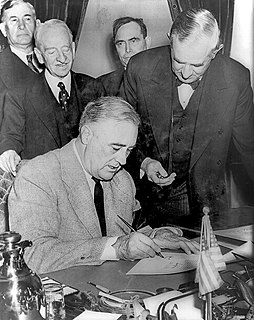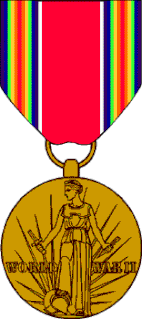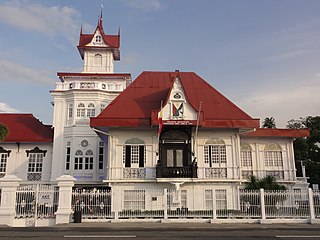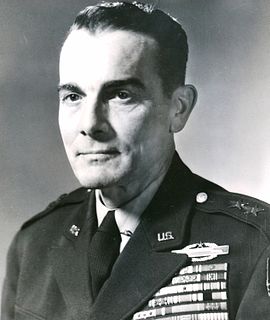Related Research Articles

The Alien and Sedition Acts were four laws passed by the Federalist-dominated 5th United States Congress and signed into law by President John Adams in 1798. They made it harder for an immigrant to become a citizen, allowed the president to imprison and deport non-citizens who were deemed dangerous or who were from a hostile nation, and criminalized making 'false statements' critical of the federal government. The Alien Friends Act expired two years after its passage, and the Sedition Act expired on 3 March 1801, while the Naturalization Act and Alien Enemies Act had no expiration clause.

Executive Order 9066 was a United States presidential executive order signed and issued during World War II by United States president Franklin D. Roosevelt on February 19, 1942. This order authorized the secretary of war to prescribe certain areas as military zones, clearing the way for the incarceration of Japanese Americans, German Americans, and Italian Americans in U.S. concentration camps. Notably, far more Americans of Asian descent were forcefully interned than Americans of European descent, both in total and as a share of relative population.

An executive order is a means of issuing federal directives in the United States, used by the President of the United States, that manages operations of the federal government. The legal or constitutional basis for executive orders has multiple sources. Article Two of the United States Constitution gives the president broad executive and enforcement authority to use his or her discretion to determine how to enforce the law or to otherwise manage the resources and staff of the executive branch. The ability to make such orders is also based on expressed or implied Acts of Congress that delegate to the president some degree of discretionary power.

A declaration of war is a formal act by which one state goes to war against another. The declaration is a performative speech act by an authorized party of a national government, in order to create a state of war between two or more states.

Executive Order 9981 was issued on July 26, 1948, by President Harry S. Truman. This executive order abolished discrimination "on the basis of race, color, religion or national origin" in the United States Armed Forces, and led to the end of segregation in the services during the Korean War (1950–1953). It was a crucial event in the post-World War II civil rights movement and a major achievement of Truman's presidency.

The World War II Victory Medal is a service medal of the United States military which was established by an Act of Congress on 6 July 1945 and promulgated by Section V, War Department Bulletin 12, 1945.

United Nations Day is an annual commemorative day, reflecting the official creation of the United Nations on 24 October 1945. In 1947, the United Nations General Assembly declared 24 October, the anniversary of the Charter of the United Nations, as which "shall be devoted to making known to the people of the world the aims and achievements of the United Nations and to gaining their support for" its work.

Executive Order 8802 was signed by President Franklin D. Roosevelt on June 25, 1941, to prohibit ethnic or racial discrimination in the nation's defense industry. It also set up the Fair Employment Practice Committee. It was the first federal action, though not a law, to promote equal opportunity and prohibit employment discrimination in the United States. Many citizens of Italian or German ethnicity were affected by World War II and this was impeding the war effort and lowering morale. This ethnic factor was a major motivation for Roosevelt. The President's statement that accompanied the Order cited the war effort, saying that "the democratic way of life within the nation can be defended successfully only with the help and support of all groups," and cited reports of discrimination:
There is evidence available that needed workers have been barred from industries engaged in defense production solely because of considerations of race, creed, color or national origin, to the detriment of workers' morale and of national unity.
The Proclamation of Neutrality was a formal announcement issued by U.S. President George Washington on April 22, 1793 that declared the nation neutral in the conflict between France and Great Britain. It threatened legal proceedings against any American providing assistance to any country at war.

The surrender of Imperial Japan was announced by Japanese Emperor Hirohito on August 15 and formally signed on September 2, 1945, bringing the hostilities of World War II to a close. By the end of July 1945, the Imperial Japanese Navy (IJN) was incapable of conducting major operations and an Allied invasion of Japan was imminent. Together with the British Empire and China, the United States called for the unconditional surrender of the Japanese armed forces in the Potsdam Declaration on July 26, 1945—the alternative being "prompt and utter destruction". While publicly stating their intent to fight on to the bitter end, Japan's leaders were privately making entreaties to the publicly neutral Soviet Union to mediate peace on terms more favorable to the Japanese. While maintaining a sufficient level of diplomatic engagement with the Japanese to give them the impression they might be willing to mediate, the Soviets were covertly preparing to attack Japanese forces in Manchuria and Korea in fulfillment of promises they had secretly made to the United States and the United Kingdom at the Tehran and Yalta Conferences.
The President's Committee on Civil Rights was a United States Presidential Commission established by President Harry Truman in 1946. The committee was created by Executive Order 9808 on December 5, 1946 and instructed to investigate the status of civil rights in the country and propose measures to strengthen and protect them. After the committee submitted a report of its findings to President Truman, it disbanded in December 1947.

The Medal for Merit was, during the period it was awarded, the highest civilian decoration of the United States. It was awarded by the President of the United States to civilians who "distinguished themselves by exceptionally meritorious conduct in the performance of outstanding services" in the war effort "since the proclamation of an emergency by the President on September 8, 1939". Awards to civilians of foreign nations were eligible "only for the performance of exceptionally meritorious or courageous act or acts in furtherance of the war efforts of the United Nations."

Independence Day is an annual national holiday in the Philippines observed on June 12, commemorating the declaration of Philippine independence from Spain in 1898.

The history of the Philippines from 1898 to 1946 describes the period of the American colonialization of the Philippines. It began with the outbreak of the Spanish–American War in April 1898, when the Philippines was still a colony of the Spanish East Indies, and concluded when the United States formally recognized the independence of the Republic of the Philippines on July 4, 1946.

Lieutenant General Louis Watson Truman was a senior United States Army officer. He served as Commanding General of the Third United States Army Truman's father, Major General Ralph E. Truman, was a cousin of President Harry S. Truman, and he served as his Aide-de-Camp during Truman's inauguration in 1948.
This is a timeline of the events that stretched over the period of World War II from January 1945 to its conclusion and legal aftermath.
The Termination of the Present War (Definition) Act 1918 was an Act of the British Parliament passed in 1918.
The presidency of Harry S. Truman began on April 12, 1945 when Harry S. Truman became president upon the death of Franklin D. Roosevelt in the last months of World War II, and ended on January 20, 1953.

During the Soviet-Japanese War in August 1945, the Soviet Union made plans to invade Hokkaido, the northernmost of Japan's four main Home Islands. Opposition from the United States and doubts within the Soviet high command caused the plans to be canceled before the invasion could begin.
References
- ↑ "38 CFR § 3.2 - Periods of war". LII / Legal Information Institute. Retrieved 2021-02-21.
- ↑ "On This Day: December 31 - The New York Times". learning.blogs.nytimes.com. Retrieved 2021-02-20.
- ↑ "Proclamation 4417, Confirming the Termination of the Executive Order Authorizing Japanese-American Internment During World War II". www.fordlibrarymuseum.gov. Retrieved 2021-02-21.
- ↑ "CESSATION OF HOSTILITIES OF WORLD WAR II | Harry S. Truman". www.trumanlibrary.gov. Retrieved 2021-02-21.
| | This World War II article is a stub. You can help Wikipedia by expanding it. |